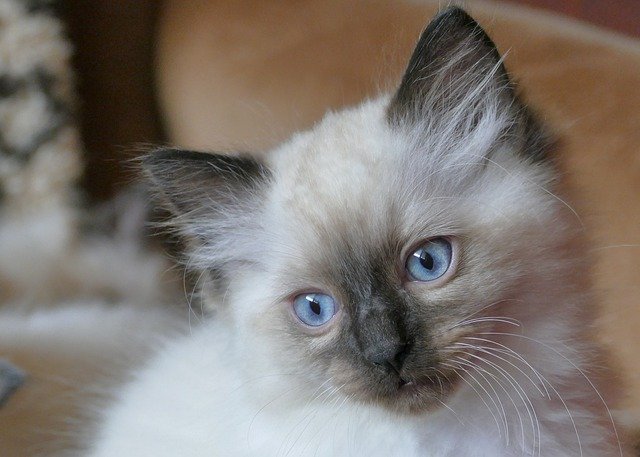If you own a cat, it can be a pretty joyous occasion if she happens to have kittens. However, on occasion, the birth of new kittens can take a darker turn if the mother cat decides to kill her kittens. This is a pretty rare occurrence, but it does happen occasionally.
It may seem cruel and arbitrary for the mother cat to do such a thing, but there’s always a reason for it. It can happen if the kittens are sick or malformed, if the mother cat is in a particularly stressful situation, or if the mother cat exerts a lot of energy during the delivery.
In this article, we’ll be going into more detail about why mother cats sometimes kill their kittens, and what you can do to prevent this from happening if your female cat is about to give birth.
Why Do Cats Sometimes Kill Their Kittens?
As we’ve mentioned, it’s generally not too common for a mother cat to kill her newborn kittens, but it can definitely happen in a few different circumstances. In some cases, the mother might also eat her newborns after killing them. This is obviously a bit of a grisly fact, but again, there’s always a reason for it.
These are some of the possible instances in which a mother cat will kill and possibly eat her kittens:
The Kittens Are Sick or Malformed
Believe it or not, your cat is quite capable when it comes to determining how healthy her kittens are; probably a lot more capable than you, in fact. If the mother cat suspects for some reason that one of her kittens is sick or has a birth defect and isn’t likely to survive for long, there’s a good chance she’ll eat that kitten.
It may seem cruel for the mother to give up on one of her own kittens like that, but this is an instinctual behavior carried over from when cats used to be wild animals. In the wild, if a mother cat were to leave a dead kitten lying around, it would inevitably attract predators and compromise both the safety of the mother cat and her other kittens.
If one of the kittens is stillborn, it’s likely the mother won’t eat it for the same reason. Sometimes, however, if the mother thinks that one of the kittens isn’t going to survive for long, she won’t kill it but will simply refuse to let it feed.
The Mother Cat Is Malnourished
If the mother cat hasn’t been eating well up to the point that she has her kittens, she may kill and eat them upon birth. This is more likely to happen if the mother gives birth to a small litter.
Mother cats need nutrients to produce milk, and if a mother cat gives birth but doesn’t have enough nutrition to produce any milk, she may eat her kittens for the nutrients. In this scenario, the kittens unfortunately die but the mother gets to live and try to have kittens again, which is obviously better than both the mother and kittens dying from malnutrition.
The Mother Cat Feels Stressed or Threatened
This is more common with feral cats than it is with domestic cats since feral cats live in inherently more dangerous environments, to begin with. However, childbirth is an inherently stressful situation no matter what species you are, and if your cat already has a high-strung temperament, she might not deal with childbirth that well.
A cat who has just given birth is in a pretty vulnerable position, and if your cat feels as though she might be in danger from something, she might kill and eat her kittens as a result. In the wild, this would give her an opportunity to escape from the dangerous situation, since she would no longer have to hang around for several days taking care of her newborns.
The Mother Cat Has Mastitis
Mastitis is an infection of the mammary glands, and if your cat has mastitis then it will be incredibly painful to her when her kittens try to nurse. In such cases, the mother will either eat her kittens or abandon them.
Mastitis is definitely something that should be treated by a vet, so keep an eye out for the following signs that your cat is suffering from this condition:
- Your cat refuses to let her kittens nurse
- Your cat’s milk is bloody or has a weird consistency
- Your cat’s stomach is hard and swollen
- Your cat has a fever and is visibly ill
How to Prevent Your Cat From Eating Her Kittens
If your cat is close to giving birth and you want to make sure she doesn’t eat her kittens, there are a few preventative measures you can take. Making sure your cat is well-fed and has a place to give birth where she feels comfortable and safe will go a long way in ensuring that the birth is successful.
If your cat is used to you and your scent, it’s unlikely that she’ll eat her kittens if you handle them soon after birth, but it might be better to err on the side of caution just in case and avoid handling the kittens until they’re a few weeks old.
Lastly, you should monitor your cat after she gives birth and ensure she’s behaving normally. If it doesn’t seem like she’s caring for them properly, you may have to remove them from her care and look after them yourself. If this ends up being the situation, you might want to talk to your vet and get some tips on how to care for newborn kittens.
[su_box title=”Affiliate Disclosure”]This website is supported by its readers. Please assume that all links are affiliate links. If you make a purchase from one of the links we will make a commission from Amazon. Thank you.[/su_box]




